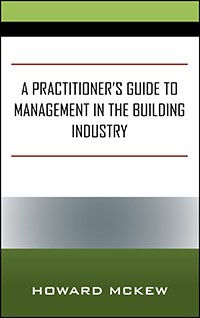The big picture goal of both partnering and commissioning is the execution of a design and construction project in which all players come away feeling successful. The project team members involved in both processes include the owner's project manager, the owner's facilities operations staff, the designers, the construction manager, the installation contractors, and the commissioning consultant. Although the primary measure of success is the owner's satisfaction, that satisfaction should then translate into a reasonable profit for all consultants and contractors. This is an excellent opportunity for continued business with the owner, and consultant/contractor staff fulfillment and retention.
Different focal points, same goal
The difference between partnering and commissioning lies primarily in their focus on different critical aspects of project success. Partnering focuses on team member relationships, while commissioning focuses on the performance of the installed systems. It was suggested that partnering might be considered "commissioning the team relationships." In addition, I believe that a meaningful partnering process will greatly enhance the success of the commissioning process because commissioning is a "team sport" that benefits from the mutual respect, trust, and open communication channels promoted by the partnering process.There are myriad similarities between partnering and commissioning. First of all, they are both processes and not events. Many people confuse partnering with a beginning-of-project partnering session. Similarly, many people confuse commissioning with an end-of-project test. Neither of the two are events; they are processes that need to be defined, facilitated, and adhered to throughout the life of the project. For commissioning, the process is defined in the commissioning plan. For partnering, it is defined in the partnering charter.
Second, both partnering and commissioning are risk management tools for all team members. Successful partnering and commissioning processes can result in better buildings, better schedule adherence, better budget adherence, better occupant satisfaction, and better O&M staff buy-in, while reducing the potential for closing a project with legal actions. Whatever costs there might be associated with either partnering or commissioning could be minor compared to what might hit a project without them.
Third, both processes depend heavily on the support and participation of the owner's management. In most design and construction projects, the owner is really the only one with power and leverage to influence everyone else on the team. If the owner doesn't show interest in or participate in either partnering or commissioning, the team members won't see their participation as important.
Fourth, both processes are buzzwords in the industry and are not consistently defined or executed from project to project or from owner to owner. Before engaging in either partnering or commissioning, the owner needs to document what those terms mean to his/her organization. This will help lay the groundwork for all other team members to understand in what they are being asked to participate. Both processes have been around long enough that a number of people have had negative experiences with one or the other. As such, they may need to be "retrained" as to what might have been wrong with the previous experience and how a new proposed version of the process is better and deserves a chance.
A benefit to the entire process
Both partnering and commissioning are "newfangled" processes for a business that has been around for centuries: designing and building buildings. There are skeptics that don't believe change is necessary or don't believe the "touchy-feely" partnering approach has a chance in the construction industry or don't believe they should spend any more money getting what they believe they are already paying their current designers and contractors to provide. Many projects have at least one skeptic on the team at the beginning. The partnering facilitator and/or the commissioning consultant need to expect that and to be experienced in and capable of managing those team members. It takes a strong and confident leader to move forward with the believers while at the same time educating, motivating, and charming the skeptics to at least try the new approach.In the end, successful partnering and commissioning processes will convert skeptics into believers. Both processes benefit all team members, and they are synergistic because partnering actually enhances the commissioning process. ES





